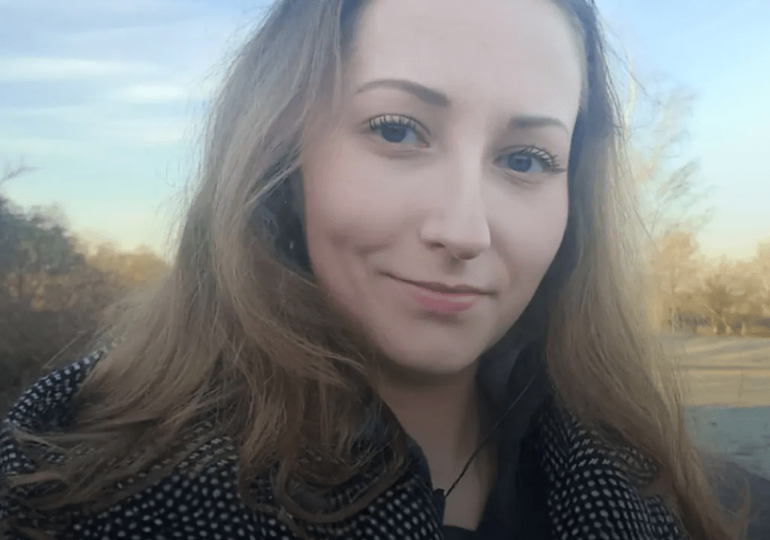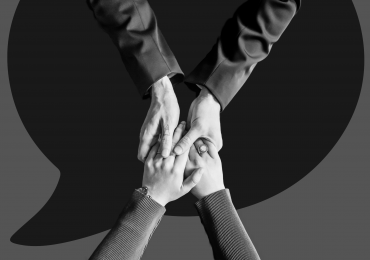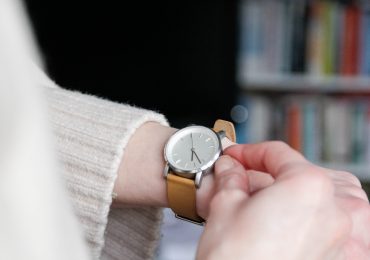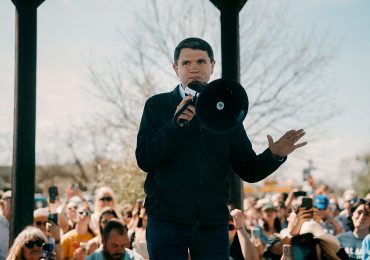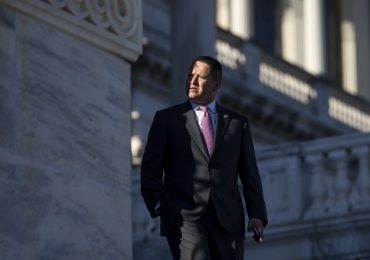A PHYSICALLY healthy woman who spent over a decade battling with crippling depression has died of euthanasia just weeks after her 29th birthday.
Zoraya ter Beek made the brave decision to end her life on her own terms after being told by doctors her mental health would “never get better”.
RTL NieuwsZoraya ter Beek has died by assisted suicide after a decade battling with crippling depression[/caption]
TwitterThe physically healthy Dutch woman ended her life on her own terms weeks after her 29th birthday[/caption]
TwitterZoraya wore a ‘do-not-resuscitate’ necklace in the time leading up to her death due to her wish to end her pain[/caption]
The Dutch woman, who had publicly spoke on her suffering and wish to be euthanized for years, passed away on May 22, at around 1:25pm local time.
Her agonising life ended in the Dutch city of Oldenzaal with the help of the Euthanasia Expertise Center, her close friend announced yesterday.
Zoraya was allowed to decide the exact date and location of her last breath as the choice came just 22 days after she celebrated her birthday.
Euthanasia has been legal in The Netherlands since 2002 – but remains illegal in the UK.
The highly controversial practice remains a hotly debated topic, with campaigners claiming it frees people from pain but critics warning it could be abused or see people pressured into dying.
Under Dutch law, a patient qualifies for an assisted death after they have exhausted all reasonable treatments and can prove they have “unbearable suffering without prospect of improvement”.
Zoraya’s friend wrote a touching tribute to her through a blog saying: “On May 22, 2024 at 1:25 PM, one of my best friends Zoraya ter Beek passed away.
“Zoraya worked tirelessly to ensure a correct image of euthanasia in cases of psychological suffering.
“We both understand that it is incomprehensible to so many people that if you have everything in mind, a nice partner, nice house, dear friends, etc., you cannot live life.
“No matter how much you want it. And whatever you do to make that possible.”
Another close pal said Zoraya died “humanely” as she “went to sleep“.
They heaped praise on the 29-year-old for her remarkable journey in raising “understanding, knowledge and mildness” on the topic of euthanasia for those in psychological pain.
The exact method of her death hasn’t been shared.
An obituary published by Dutch newspaper Algemeen Dagblad said she died “a dignified death, which she longed for for years due to unbearable psychological suffering”.
She has left behind her loving 40-year-old boyfriend who was thought to be by her side when she passed away and their two cats.
Zoraya, from Twente, once aspired to become a psychiatrist but couldn’t finish her studies because she was struggling with depression and autism.
For ten long years, she tried all possible solutions from therapy to medications to improve her condition but found nothing could help.
Zoraya worked tirelessly to ensure a correct image of euthanasia in cases of psychological suffering
close friend
Zoraya lost hope for recovery after her psychiatrist told her “there’s nothing more” they could do to treat her pain.
“It’s never gonna get any better,” she claims her doctor told her.
What is euthanasia and why is it controversial?
EUTHANASIA, sometimes known as mercy killing, is the practice of intentionally ending someone’s life to relieve their pain and suffering.
The term comes from an ancient Greek phrase meaning “good death”.
Euthanasia is deliberately helping or encouraging someone to take their own life, for example by providing them with medicine to do so.
Euthanasia is a crime under English law, carrying a maximum penalty of life in jail, and assisted suicide 14 years.
The only exception is “passive euthanasia”, which is where treatment that might extend someone’s life is withdrawn – such as a life machine being turned off.
For terminally ill patients in the UK, the only alternatives are hospice care or refusing treatment, which mentally capable patients have the right to do.
As a result, some terminally ill people decide to travel abroad to die.
Euthanasia and dying is a controversial issue – with passionate campaigners on each side of the argument.
People who agree with euthanasia often argue that people should be allowed to die with dignity – and they should be able to decide when and how they die, and potentially save their loved ones the pain of seeing them suffer.
Some also believe death is private, and it’s not the state’s place to interfere if a person wants to die.
Those in favour of euthanasia also point out that we euthanise our pets as an act of kindness – and resources could be put towards people who want to live, or whose conditions are curable.
However, there are concerns that allowing euthanasia would give doctors too much power, and might even worsen care for the terminally ill and research into their illnesses.
Some also believe it goes against the job description of doctors and nurses and the oath they take to not harm patients – they also say it undermines the value of human life.
Others also worry about the possibility of someone potentially recovering, or changing their mind when it’s already too late.
Some have even suggested it could lead to people feeling pressured into asking to die, as they don’t want to be a burden upon those around them
More and more people are choosing to be euthanized due to mental health problems.
In 2017, out of 6,585 deaths from euthanasia in the Netherlands, 84 were on the grounds of psychiatric suffering.
But the approval procedure for psychiatric petitions can take years and only approximately 10 per cent of applications are granted.
Jolanda Fun has prepared for her funeral in advance after making plans to end her life by euthanasia on her 34th birthday.
The Dutch woman has been fighting crippling depression since the age of seven – describing her life as a constant pain.
She told The Sunday Times she had long battled depression, autism and mild learning difficulties – and wanted to “step out of life”.
DOCTOR’S VIEWS ON EUTHANASIA
Zoraya’s case received global attention and sparked a fierce debate around assisted dying for those with mental health issues.
Some are adamant it should only be given to terminally-ill people who are on the verge of an imminent death or are in serious pain.
Others argue a comfortable and peaceful death is a better option than being forced to live through personal struggles that may not be obvious to others.
Critics have blasted the decision for some countries to legalise the practice, saying it encourages people like Zoraya to die rather than live in pain.
Stef Groenewoud, a healthcare ethicist at Theological University Kampen, told the Free Press: “I see the phenomenon, especially in people with psychiatric diseases, and especially young people with psychiatric disorders, where the healthcare professional seems to give up on them more easily than before.”
Critics blame “suicide contagion” on a social media glamorisation of suicide and radical right-to-die activists who advocate for the freedom to kill ourselves when our lives are “complete”.
But some doctors believe euthanasia is an acceptable alternative as they view suicidal patients as people with terminal illnesses.
Kit Vanmechelen told BBC: “I’ve treated patients that I knew were going to commit suicide. So to have euthanasia as an alternative makes me very grateful we have a law.
“The ones I know will commit suicide are terminal in my opinion. And I don’t want to abandon my patients who are not able to go on with their lives.”
Despite this, data revealed 8,720 people in the Netherlands ended their lives with euthanasia in 2022 – up by 14 per cent from 2021.
You’re Not Alone
EVERY 90 minutes in the UK a life is lost to suicide
It doesn’t discriminate, touching the lives of people in every corner of society – from the homeless and unemployed to builders and doctors, reality stars and footballers.
It’s the biggest killer of people under the age of 35, more deadly than cancer and car crashes.
And men are three times more likely to take their own life than women.
Yet it’s rarely spoken of, a taboo that threatens to continue its deadly rampage unless we all stop and take notice, now.
That is why The Sun launched the You’re Not Alone campaign.
The aim is that by sharing practical advice, raising awareness and breaking down the barriers people face when talking about their mental health, we can all do our bit to help save lives.
Let’s all vow to ask for help when we need it, and listen out for others… You’re Not Alone.
If you, or anyone you know, needs help dealing with mental health problems, the following organisations provide support:
CALM, www.thecalmzone.net, 0800 585 858
Heads Together,www.headstogether.org.uk
HUMEN www.wearehumen.org
Mind, www.mind.org.uk, 0300 123 3393
Papyrus, www.papyrus-uk.org, 0800 068 41 41
Samaritans,www.samaritans.org, 116 123
Jolanda Fun has suffered with mental health issues since she was seven and is now planning to die by assisted suicide
AlamyDemonstrators in the UK have campaigned for the right to allow for euthanasia for years after countries like Belgium and the Netherlands legalised it[/caption]
Leave a comment
